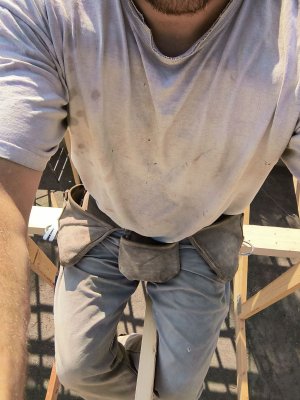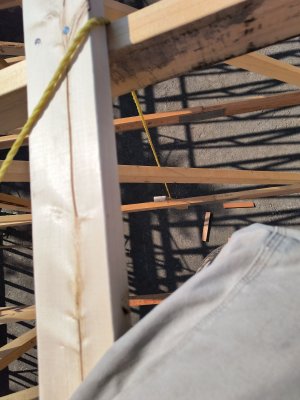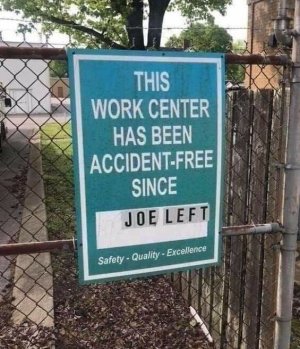I wear safety glasses. I have a 20lb & a 5lb fire extinguisher in the shop, the 20 I picked up last spring at our meet. Occasionally I'll put on a face mask for grinding, sorta depends on the size of the job. I try do do as much cutting & grinding outside as possible, the little welding I do (so far) is at the open overhead door. I rarely put on hearing protection (I know, I know). Depending on what I'm cutting/sawing, I may wear a dust mask. Gloves, rarely. Sometimes while working w/ a nasty chemical I'll put nitrile gloves on.
That said, some of this safety stuff goes into the ridiculous. Started a new job a number of years back, had to take a s-load of safety modules. After blowing an afternoon on some of them (including one on ladder safety) I trundle past a two step step ladder which was used to stock top shelves. Now, everyone knows that you're not s'pose to stand on the top rung of a ladder. Fine. This company's policy was that you weren't s'pose to stand on the second rung from the top, either. In effect, rendering this two step ladder useless & against company policy.
In addition, safety policy is only as good as those administering it. Case in point: Everyone at this place, according to written company policy, was s'pose to wear safety boots. Period. Unless, of course, you got a Dr's note saying that your feet hurt wearing safety boots & you could wear whatever you wanted, sandals, sneakers, Crocs, etc.
They also put a significant emphasis on driving safety. Fine. I stop at stop signs, mirror check, shoulder check, signal, observe municipal speed limits, etc., etc., etc. anyway. No biggie. While there, I watched a number of members of the management team blow through stop signs, fail to signal at turns, text, surf & talk on their cell phones while driving, speeding, etc.
Yet, if you squealed, you'd have been toast. Rules for thee & not for me.



